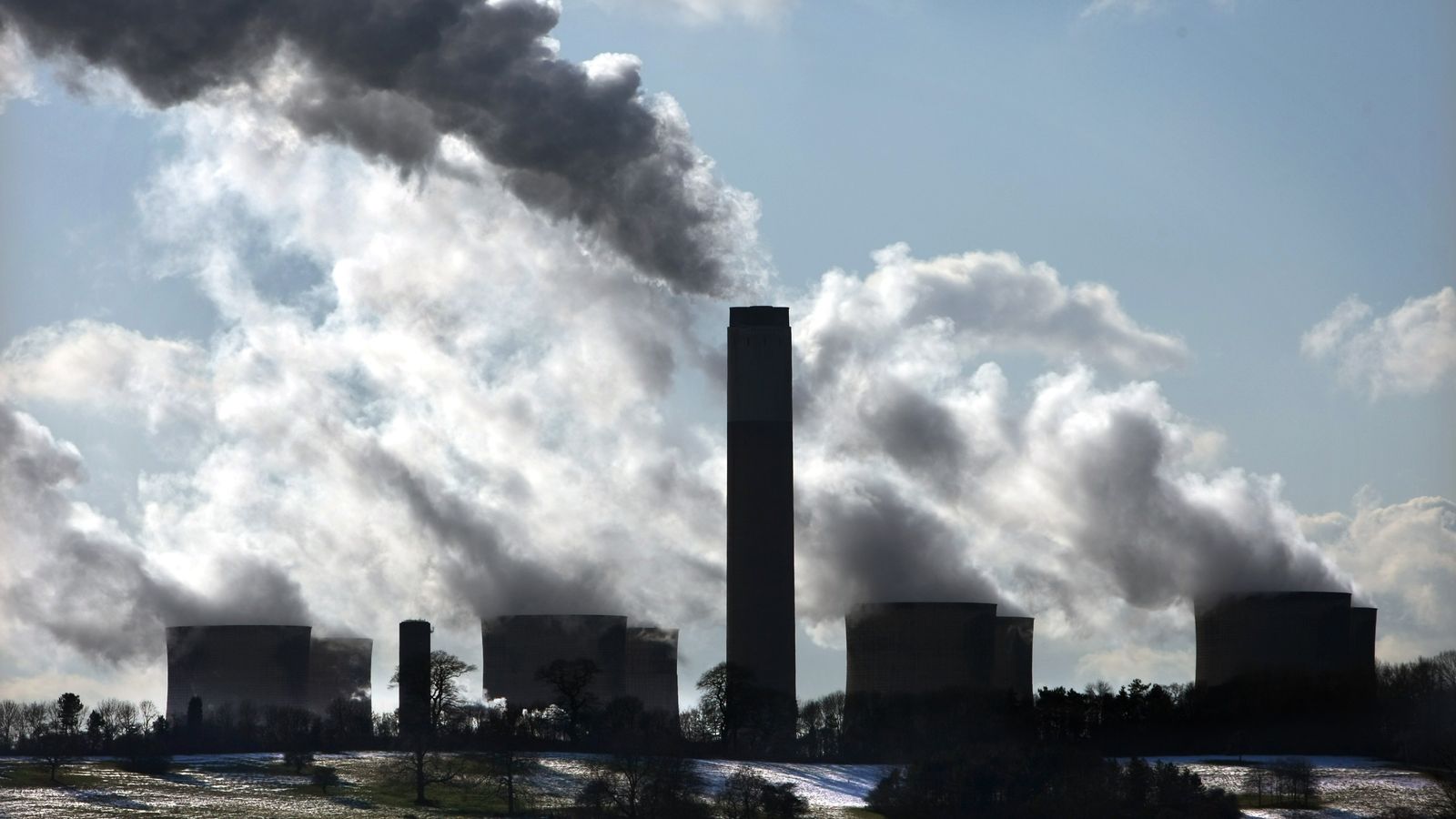Scotland’s 2030 climate change target for reducing greenhouse gas emissions is now out of reach, independent experts have concluded.
A new report from the Climate Change Committee (CCC) has said the measures needed to achieve the target were now “beyond what is credible”.
The CCC said in order for Scotland to achieve its goal of cutting harmful emissions by 75% by 2030, the rate of emission reduction in most sectors would need to increase by a factor of nine in the years up to the end of the decade.
In a damning report to the Scottish parliament, the CCC said: “The Scottish government is failing to achieve Scotland’s ambitious climate goals.”
Scotland has missed eight of the past 12 annual targets for cutting planet-warming greenhouse gas emissions.
The report also noted a rise in emissions in 2021, linked to colder-than-average weather that year and an increase in transport emissions post-COVID.
The CCC also highlighted that the publication of Scotland’s new draft Climate Change Plan, due late in 2023, had been “delayed”.
Family tribute after teenagers killed in car and lorry crash in Stirling
Vandals torch Glasgow playground causing £25,000 worth of damage
Emergency helipad opens on Isle of Mull
‘Falling short’
As such, it said there was “no comprehensive delivery strategy for meeting future emissions targets”.
Calling on ministers to publish this “urgently”, the CCC insisted that “actions continue to fall far short of what is legally required”.
The independent body, which advises governments across the UK on climate change, said that now the 2030 target was “not credible” the Scottish government should instead seek to “build on its high ambition and implement policies that enable the 75% emissions reduction target to be achieved at the earliest date possible”.
It said: “By the end of this decade, Scotland will need to: treble the pace of rollout of public electric vehicle charge points, reduce car traffic by 20%, increase heat-pump installation rates by a factor of at least 13 and double onshore wind capacity.
“Woodland creation will need to more than double by the mid-2020s and peatland restoration rates need to increase significantly.”
Please use Chrome browser for a more accessible video player
‘No strategy’
The report also said there was “no strategy for decarbonising aviation in Scotland”, with a plan “still needed” to meet the commitment for 30% of Scottish government-managed ferries to be low emission by 2032.
Turning to buildings, the CCC said that while approximately 6,000 domestic heat pumps were installed in Scotland in 2023, this “needs to increase to more than 80,000 per year by the end of the decade”.
The peatland restoration target has been missed for the fifth consecutive year, and ministers were told “Scotland is significantly off track to meet its 2025 70% recycling-rate target, with no progress in rates over the last 10 years”.
However, the report said there had been “some progress in delivering renewable electricity generation in Scotland”. The CCC said that the Scottish government was on track to meet its targets for offshore wind capacity in 2030, but that it was “slightly off track” for the onshore wind target for this year.
Click to subscribe to ClimateCast with Tom Heap wherever you get your podcasts
Net Zero Secretary Mairi McAllan said: “The Climate Change Committee has always been clear that meeting the legislated 2030 target, agreed by parliament on a cross-party basis, will be extremely challenging, and may not be feasible.
“We remain fully committed to meeting our target of net-zero emissions by 2045, and in 2024-25 alone we are committing £4.7bn to support the delivery of our climate change goals.
“Scotland is already halfway to net zero and continues to decarbonise faster than the UK average.”
Read more on Sky News
‘Red alert to the world’ after 2023 plagued with Climate ‘misery and madness’
Weak heat pump uptake harming efforts to cut emissions, government warned
Ms McAllan highlighted that in the last five years Scotland has created around 75% of all new woodlands throughout the UK.
She also noted more than a third of the population benefits from free bus travel and more than £65m has been invested to support the installation of around 2,700 public EV charge points.
The Scottish government also hopes to reduce car mileage by 20% by 2030 and decarbonise buildings through its proposed Heat in Buildings Bill.
Be the first to get Breaking News
Install the Sky News app for free
Ms McAllan accepted that the “hardest part of this journey is ahead of us” and stated that the Scottish government expects a “real-terms cut” to its UK capital funding.
She added: “We have also faced opposition to modest measures in tackling the crisis, such as low emission zones, workplace parking and the deposit-return scheme, at a time when consensus is crucial to ensure that we have a sustainable planet.
“We will now carefully consider the report’s recommendations and our next steps, including legislative options, before providing a formal response.”






